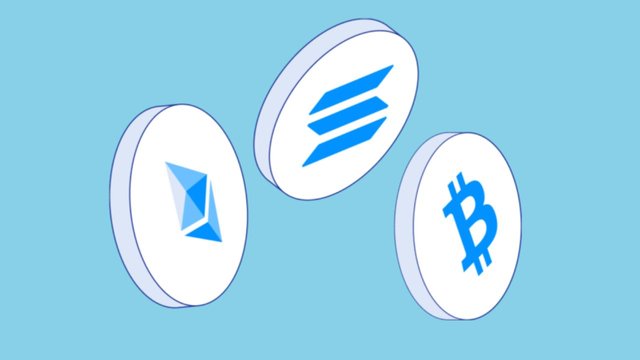
The world of crypto tokens is evolving rapidly, driven by technological advancements, regulatory changes, and shifting market demands. As we look ahead, several trends and innovations are set to redefine the landscape of token development. This blog explores the key trends and emerging technologies shaping the future of crypto token development.
1. Interoperability and Cross-Chain Solutions
One of the most significant trends in crypto token development is the push towards interoperability and cross-chain solutions. As the blockchain ecosystem grows, the need for seamless interaction between different networks becomes crucial. Projects like Polkadot, Cosmos, and Avalanche are leading the charge by providing frameworks that allow tokens to move effortlessly between different blockchains. This interoperability not only enhances the functionality of tokens but also expands their use cases, enabling more complex and integrated decentralized applications (dApps).
2. Decentralized Finance (DeFi) Innovations
Decentralized Finance (DeFi) continues to be a major driver of innovation in the crypto space. New token models and protocols are emerging to address scalability, security, and user experience issues. Innovations such as decentralized exchanges (DEXs), automated market makers (AMMs), and yield farming are becoming more sophisticated. Additionally, the rise of Layer 2 solutions, like zk-Rollups and Optimistic Rollups, is helping to improve transaction speeds and reduce costs, making DeFi more accessible and efficient.
3. Non-Fungible Tokens (NFTs) Beyond Art
While NFTs initially gained popularity through digital art and collectibles, their applications are expanding into various sectors. The future of NFTs includes their use in real estate, gaming, and intellectual property. Innovations such as fractionalized NFTs and dynamic NFTs, which can change over time based on external factors, are opening new possibilities. Furthermore, the integration of NFTs with virtual worlds and metaverses is creating new opportunities for digital ownership and experiences.
4. Regulatory Compliance and Legal Frameworks
As the crypto industry matures, regulatory compliance is becoming increasingly important. Future token development will need to address evolving regulatory requirements to ensure legal and operational stability. Innovations in compliance technologies, such as on-chain KYC (Know Your Customer) and AML (Anti-Money Laundering) solutions, are being developed to facilitate adherence to regulatory standards while maintaining decentralization principles.
5. Tokenization of Traditional Assets
The tokenization of traditional assets is a growing trend that bridges the gap between the traditional financial system and the blockchain world. Real estate, equities, bonds, and commodities are being tokenized to provide greater liquidity and accessibility. This trend is expected to gain momentum as more institutions recognize the benefits of digital asset ownership and blockchain technology.
6. Enhanced Security Measures
As the value of crypto tokens increases, so does the importance of security. Innovations in cryptographic techniques, such as quantum-resistant algorithms and advanced multi-signature protocols, are being developed to safeguard tokens from potential threats. Additionally, the rise of secure enclaves and hardware wallets is enhancing the protection of private keys and transaction data.
7. Sustainable and Green Technologies
Environmental concerns surrounding blockchain technology are driving the development of more sustainable and eco-friendly solutions. Proof-of-Stake (PoS) and hybrid consensus mechanisms are gaining traction as alternatives to energy-intensive Proof-of-Work (PoW) systems. Projects focused on reducing the carbon footprint of blockchain operations and promoting green technologies are becoming more prominent, aligning with global sustainability goals.
8. Tokenomics and Economic Models
The design of tokenomics—the economic model governing a token's supply, distribution, and utility—is evolving. Innovative token models, such as deflationary tokens, governance tokens, and utility tokens, are being explored to incentivize and reward users. Understanding the economic implications of these models will be crucial for developers and investors alike as they seek to optimize the value and functionality of their tokens.
9. Integration with Emerging Technologies
The integration of crypto tokens with emerging technologies, such as artificial intelligence (AI) and the Internet of Things (IoT), is paving the way for new use cases and applications. AI-powered smart contracts and IoT-enabled tokens are expected to drive innovation in areas like supply chain management, automated trading, and predictive analytics.
10. Community and Governance Innovations
The role of community and governance in token development is evolving. Decentralized Autonomous Organizations (DAOs) and other governance structures are providing token holders with more influence over project decisions. Innovations in governance models, such as quadratic voting and liquid democracy, are being explored to enhance participation and decision-making processes within the crypto ecosystem.
Conclusion
The future of crypto token development is filled with exciting possibilities and innovations. As the industry continues to evolve, staying informed about these trends and adapting to new technologies will be key to leveraging the full potential of crypto tokens. Whether it's through enhanced interoperability, advanced DeFi solutions, or sustainable practices, the next wave of crypto token development promises to reshape the digital landscape in transformative ways.